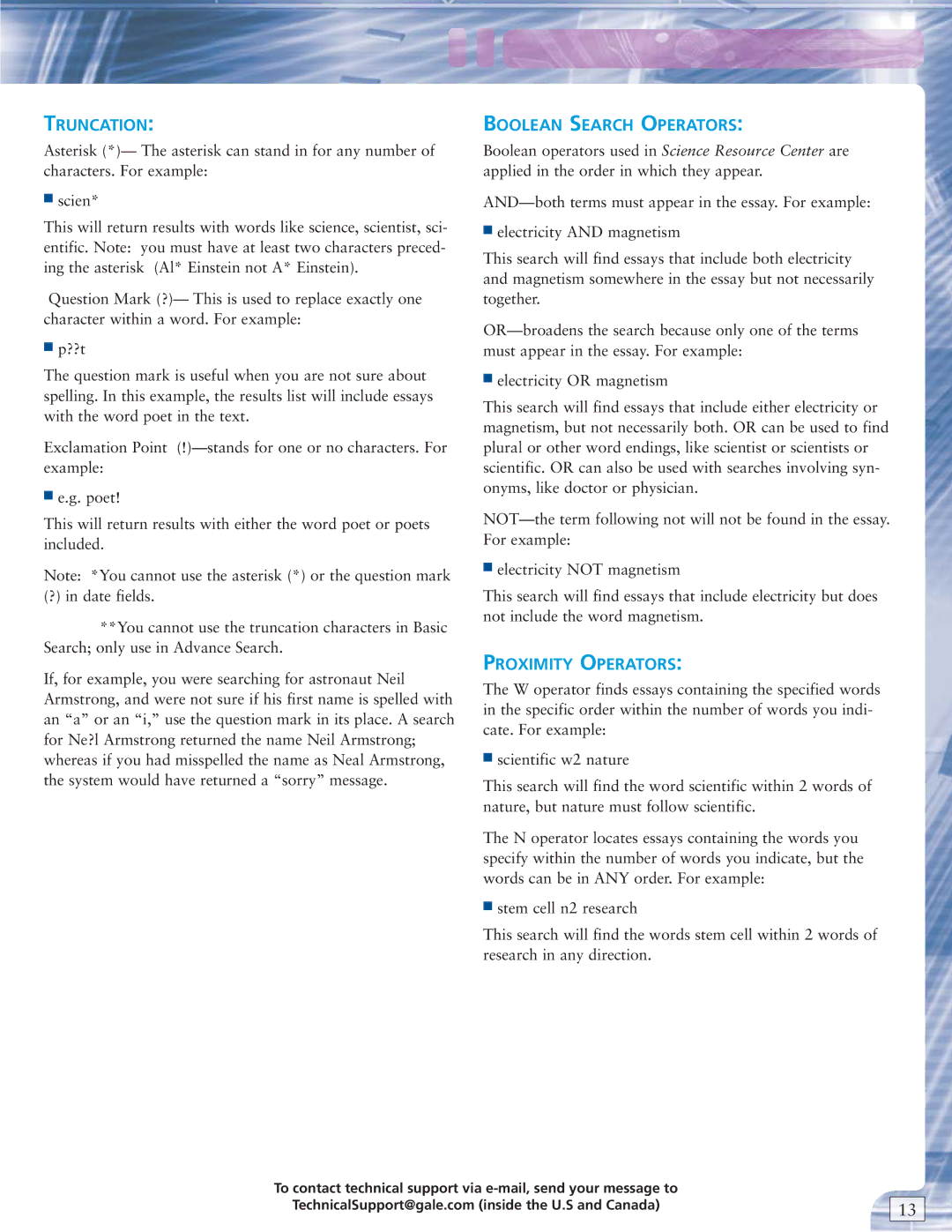
TRUNCATION:
Asterisk (*)— The asterisk can stand in for any number of characters. For example:
■scien*
This will return results with words like science, scientist, sci- entific. Note: you must have at least two characters preced- ing the asterisk (Al* Einstein not A* Einstein).
Question Mark (?)— This is used to replace exactly one character within a word. For example:
■p??t
The question mark is useful when you are not sure about spelling. In this example, the results list will include essays with the word poet in the text.
Exclamation Point
■e.g. poet!
This will return results with either the word poet or poets included.
Note: *You cannot use the asterisk (*) or the question mark
(?) in date fields.
**You cannot use the truncation characters in Basic Search; only use in Advance Search.
If, for example, you were searching for astronaut Neil Armstrong, and were not sure if his first name is spelled with an “a” or an “i,” use the question mark in its place. A search for Ne?l Armstrong returned the name Neil Armstrong; whereas if you had misspelled the name as Neal Armstrong, the system would have returned a “sorry” message.
BOOLEAN SEARCH OPERATORS:
Boolean operators used in Science Resource Center are applied in the order in which they appear.
■electricity AND magnetism
This search will find essays that include both electricity and magnetism somewhere in the essay but not necessarily together.
■electricity OR magnetism
This search will find essays that include either electricity or magnetism, but not necessarily both. OR can be used to find plural or other word endings, like scientist or scientists or scientific. OR can also be used with searches involving syn- onyms, like doctor or physician.
■electricity NOT magnetism
This search will find essays that include electricity but does not include the word magnetism.
PROXIMITY OPERATORS:
The W operator finds essays containing the specified words in the specific order within the number of words you indi- cate. For example:
■scientific w2 nature
This search will find the word scientific within 2 words of nature, but nature must follow scientific.
The N operator locates essays containing the words you specify within the number of words you indicate, but the words can be in ANY order. For example:
■stem cell n2 research
This search will find the words stem cell within 2 words of research in any direction.
To contact technical support via |
|
TechnicalSupport@gale.com (inside the U.S and Canada) | 13 |
